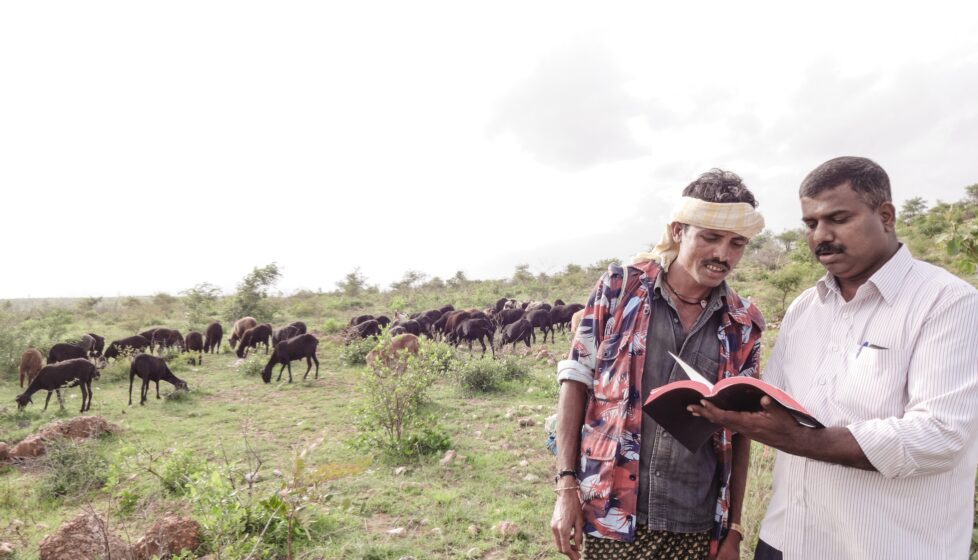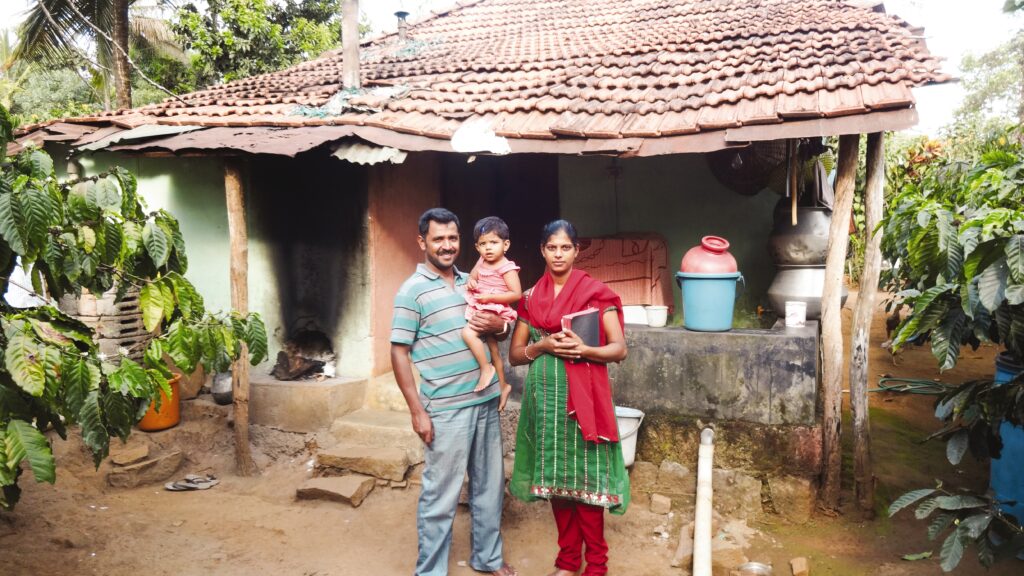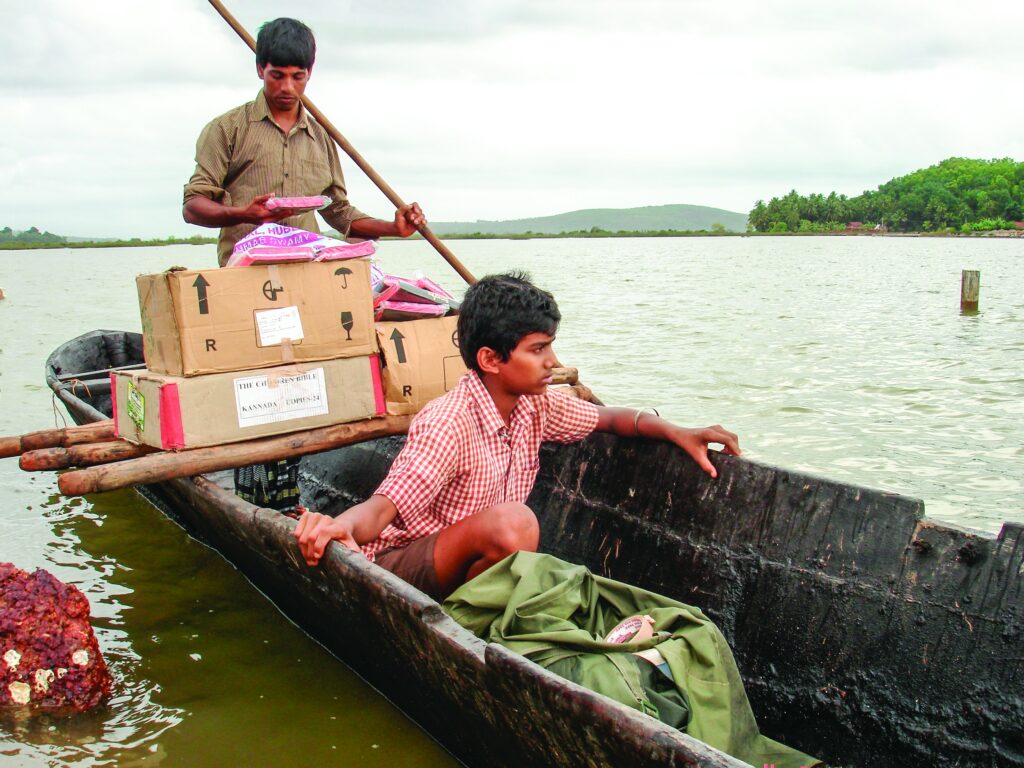Christians in India Live with All Hindus and No Churches
India

Chandrashekar stood in a simple home in a small Indian farming village and prayed with a couple who had come to Christ just four months earlier. Brother Bala and Sister Kuskuma were the only Christians in their village, and they were surrounded by 40 families — all devout Hindus. With no church in their village, their only source of fellowship and spiritual nourishment was Chandrashekar, who lived 15 kilometers [a little over nine miles] away.
After sharing a message of abiding in Christ from John 15 and Psalm 1, Chandrashekar prayed for the couple. He prayed that they would boldly share the gospel with fellow villagers, and he prayed that their relatives would also come to know Christ. Since Chandrashekar had to visit a family in another village before returning home, he thanked Brother Bala and Sister Kuskuma, packed his Bible and left their home.
Chandrashekar hadn’t traveled far down the road when he was confronted by a mob of 40 men, some armed with sticks.
“Did you visit Hindu people’s houses to convert them?” they demanded.
“I visited their house to pray,” he replied.

That was enough evidence for the mob. They grabbed Chandrashekar’s Bible and tore it up, and they began beating him on his head and back, causing him to lose consciousness briefly. When the police arrived, they ignored the mob and immediately arrested Chandrashekar.
After arriving at the police station, the officers began to question him. “Where are you getting money to convert people?” they asked. “How many people have you converted?” With his ears, head and back still aching from the beating, Chandrashekar replied, “I do not convert the people. I only share my faith, tell people what Jesus did in my life and my family’s life and also pray for them. I earn money by driving a rented auto [rickshaw] daily. I don’t get money from anywhere.”
Unsatisfied with his response, police tried to make Chandrashekar confess that he was converting people by force.
Even though India’s constitution guarantees freedom of religion, nine of the country’s 28 states have implemented laws forbidding “forcible conversions,” and other states are considering them. These laws, which are frequently used against Christians, make it illegal to convert someone “by force, fraud or allurement.” In Gujarat and Madhya Pradesh states, anyone wishing to convert from Hinduism or wanting to convert another must give 30 days’ advance notice and seek permission from the government. Violators face jail terms and hefty fines.
Persecution of Christians continues in the form of Bible burnings, destruction of churches and personal property, imprisonments, beatings, and murders in some parts of India. Attackers are rarely charged. VOM workers say that a militant Hindu group called Rashtriya Swayamsevak Sangh (RSS), whose goal is to create a purely Hindu nation, is the biggest persecutor of Christians in India.
Chandrashekar was released from prison and returned home the day after the attack. Like the Christian couple he had visited in the small village, he and his family are the only believers in their village of more than 1,000 Hindus. While some Hindus have a good opinion of Christians, others don’t like them. “Some [Hindus] think they are … spoiling Hindu culture,” Chandrashekar told a VOM worker. Though there is no church in his village, he worships with his family and reads Scripture with them daily.

Since the attack, Chandrashekar’s troubles have continued. The owner of the rickshaw that he uses to support his family thought he was using it to share the gospel, so the owner took the rickshaw for fear that radical Hindus would destroy it. And two weeks after he was attacked, the family’s cow was found dead in a nearby field.
Despite these difficulties, Chandrashekar continues to share his faith. In fact, he has since shared the gospel with 10 other families. As a former Hindu — who turned to Christ after an evangelist visited his village and his mother was healed from cancer — he wants others to be saved like him, even if it means getting beaten and arrested.
Chandrashekar continues to encourage believers in nearby villages. Drawing on the example of the apostles in the book of Acts, he continues to minister on the front lines, sharing the gospel with Hindus and pointing them to the one true God — Jesus Christ (John 14:6). VOM supports Chandrashekar and other front-line workers who are reaching India for Christ no matter the cost. VOM provides Christian workers with Bibles and Christian books as well as tools like motorbikes, bicycles and lanterns to help them as they evangelize.

“Pray for my family to abide in Christ more and serve the Lord more than before,” Chandrashekar asked. VOM is grateful for those supporting and standing with Chandrashekar and other front-line workers serving in India. “Before I had the fear of the radical group’s attack,” he told a VOM worker, “but after that my fear is gone. Now I can share the gospel with much boldness. It was a miracle that I was released from the jail.”


 Guide
Guide